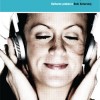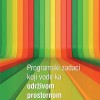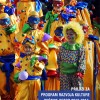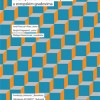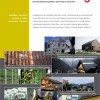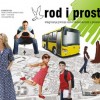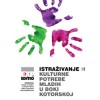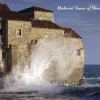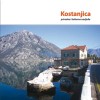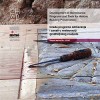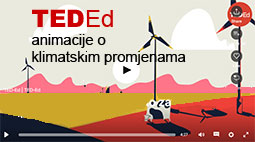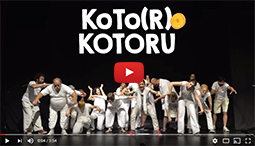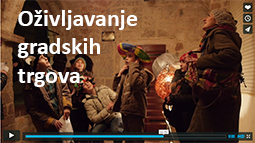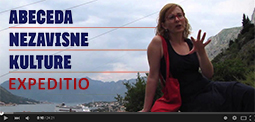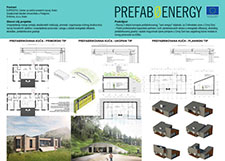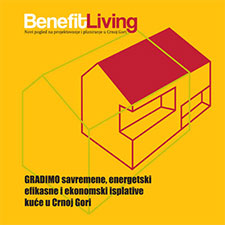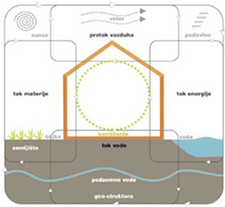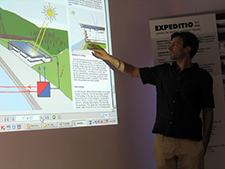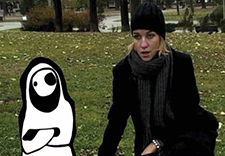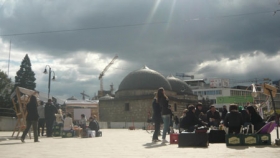 The workshop “SQUARE PLAY” was the third and final in the series of regional workshops envisaged by the project “Revival of City Squares in the Balkan Cities”.
The workshop “SQUARE PLAY” was the third and final in the series of regional workshops envisaged by the project “Revival of City Squares in the Balkan Cities”.
About the workshop
The aim of this workshop was to encourage regional exchange of ideas regarding the discourse on city squares / public spaces and how they can be transformed into vibrant community places that meet community cultural, social and economic needs and foster new perspective and awareness, so that the idea of "city culture" (the way people think about public spaces and conceive them) can be developed. The objective of the workshops was to provoke young people to voice their ideas, aspirations and solutions for open public spaces and city squares and to inspire them to take an active role in future development of urban and cultural policies, both locally and on a wider regional level. The workshop reflected the regional dimension, and stimulated sharing of fresh ideas, so essential for this project.
Background
Skopje, the largest city in the Republic of Macedonia, owes its present form to the process of stratification of differentiated layers developed as a result of its urban transformations. These transformations are products of the historical and morphological processes that shaped and are still shaping the city. Discontinuous and unrelated urban concepts, planning policies and construction practices, implemented, or at least used as theoretical ground for its urban development, have eventually created the image of Skopje as “a city of fragments”, recognised as connected or disconnected city parts, more like cities-in-the city, or cities-next-to-a city. The public spaces and public life in the city of Skopje as a result of such processes are slowly disappearing and the newly proposed ones seem to simulate rather than to stimulate and provoke interaction. Such spaces do not contribute nor enhance city’s qualities, but are empty and unarticulated spaces emerging in the in-between realm producing permanent strangeness questing for an immediate rethinking and action.
Why SQUARE-PLAY?
"I can take any empty space and call it a bare stage. A man walks across this empty space, someone is watching him, and that is all that is needed for an act of theatre to be engaged."(The Empty Space — A Book About the Theatre: Deadly, Holy, Rough, Immediate, Peter Broook)
The idea derived from two significant and quite inspiring words: Fair-play and Screen-play. The word Fair-play, (which means equitable or impartial treatment), when applied to the users of public spaces / city squares and their right to use the space, means that no one has the right to deprive or threaten other people from using it freely and without limitation. In other words, the right we ask for ourselves obliges us to respect the rule of fair play – that is, the very same right of others to do the same (conformity to established rules). The other word, Screen-play, (defined as an outline or synopsis of a possible course of action or events), is closely connected and relates to the premise that in order to create a place in which many people / as users and actors / will be attracted to spend their time, it is necessary to envision variety of possible ways in which that given space can be used, and based on that, to create a setting (screen-play) for its use. This play presupposes interface of many actors and many actions, therefore the screen-play should foresee numerous scenes for different potential “drama” (a state, situation, or series of events involving interesting or intense interaction of partakers) that may take place in that space. Reading these two words as such provides us with a framework for a new "play" which we are pleased to call a SQAURE-PLAY.
Approach: Space = Stage; Surrounding environment = Scenery; Citizens (users) = Actors; Activities = Drama
Location: The plateau in front of the Department store “MOST” in Skopje
”Fair-play + Screen-play = Square-play” workshop through facts and figures
- In total: there were 56 participants.
- Workshop leaders: Natasha Polavska, theatre director, Divna Pencic, docent at the faculty of Architecture, Sonja Damchevska, project coordinator for Macedonia
- Co-operators and assistants: Sasho Ivanovski, Biljana Spirkoska, Stefan Lazarevski, Mileva Zlatanovic, Aneta Spaseska, Elizabetka Poljoska, Olgica Nelkovska, Juljan Veleshnja, (Co-Plan & University Polis) and Sandra Lalic, (Expeditio)
- Participants in the workshop groups: 44 in total (9 from Albania, 9 from Montenegro, 26 from Macedonia)
- Daily topics: See the Place – Feel the Space; Playground, Living-room, Park, Market, Theatre play.
Guest lecturers: Elizabeta Avramovska, Meri Batakoja, Jasna Stefanovska, Ognen Marina, Bojan Karanakov, Stefanka Hadzi Pecova, Aleksandar Prokopiev, Naum Paunovski
Results
With regards to the set objectives, expected results from the workshop were:- Real-time action and creative visions how to “give life” to the open public spaces.- In the spirit of “giving and receiving”, exchange of ideas, knowledge and practices among the participants (contribution to the platform and the network of young advocates (“esprit de corp”) in the three Balkan countries to promote the discourse on how city squares/public spaces can be transformed into vibrant community places)- Inputs to the guidelines intended for the local authorities how to carry out the process of city planning in a participative manner.Based on our assessments as well as on the answers received by the participants, we believe that the workshop managed to deliver the outcomes it was hoping for and even beyond. The learning points from the workshop will be used as an input to the guidelines for the local authorities to carry out the process of city planning in a participative manner, but also to us when designing the activates targeted to the local authorities, planned for the following phase of the project “Revival of City Squares in the Balkan Cities”.




 EXPEDITIO is a non-governmental organization whose mission is to encourage sustainable spatial development in Montenegro and SEE region through activity in the fields of sustainable architecture, cultural heritage, urban planning and through projects that encourage overall development of the civil society. Expeditio was established in 1997.
EXPEDITIO is a non-governmental organization whose mission is to encourage sustainable spatial development in Montenegro and SEE region through activity in the fields of sustainable architecture, cultural heritage, urban planning and through projects that encourage overall development of the civil society. Expeditio was established in 1997.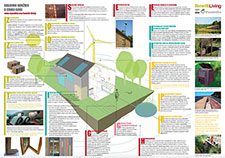
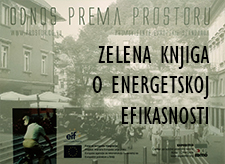
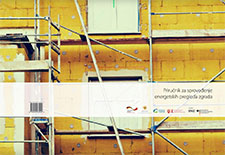
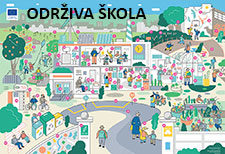
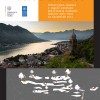

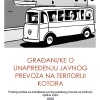
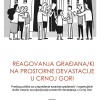
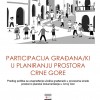
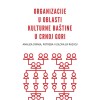
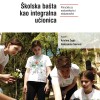

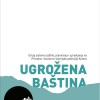
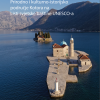
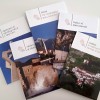
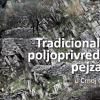
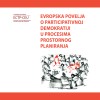
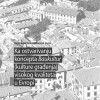
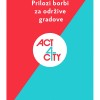
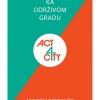
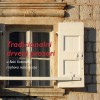
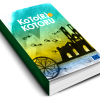
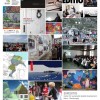
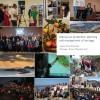
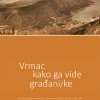




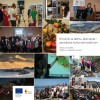

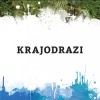
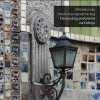


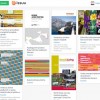
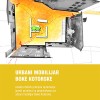
![Guidelines for the Revival of Public Spaces [Good practice selection] Guidelines for the Revival of Public Spaces [Good practice selection]](/images/resized/images/stories/expeditio/publikacije/Publikacija-Javni-prostori-naslovna_100_100.jpg)
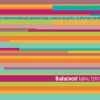
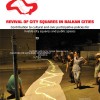
![Catalogue of Public Spaces in Boka Kotorska [selected sites] Catalogue of Public Spaces in Boka Kotorska [selected sites]](/images/resized/images/stories/expeditio/novosti_exp/javni-prostori-knjiga_100_100.jpg)

